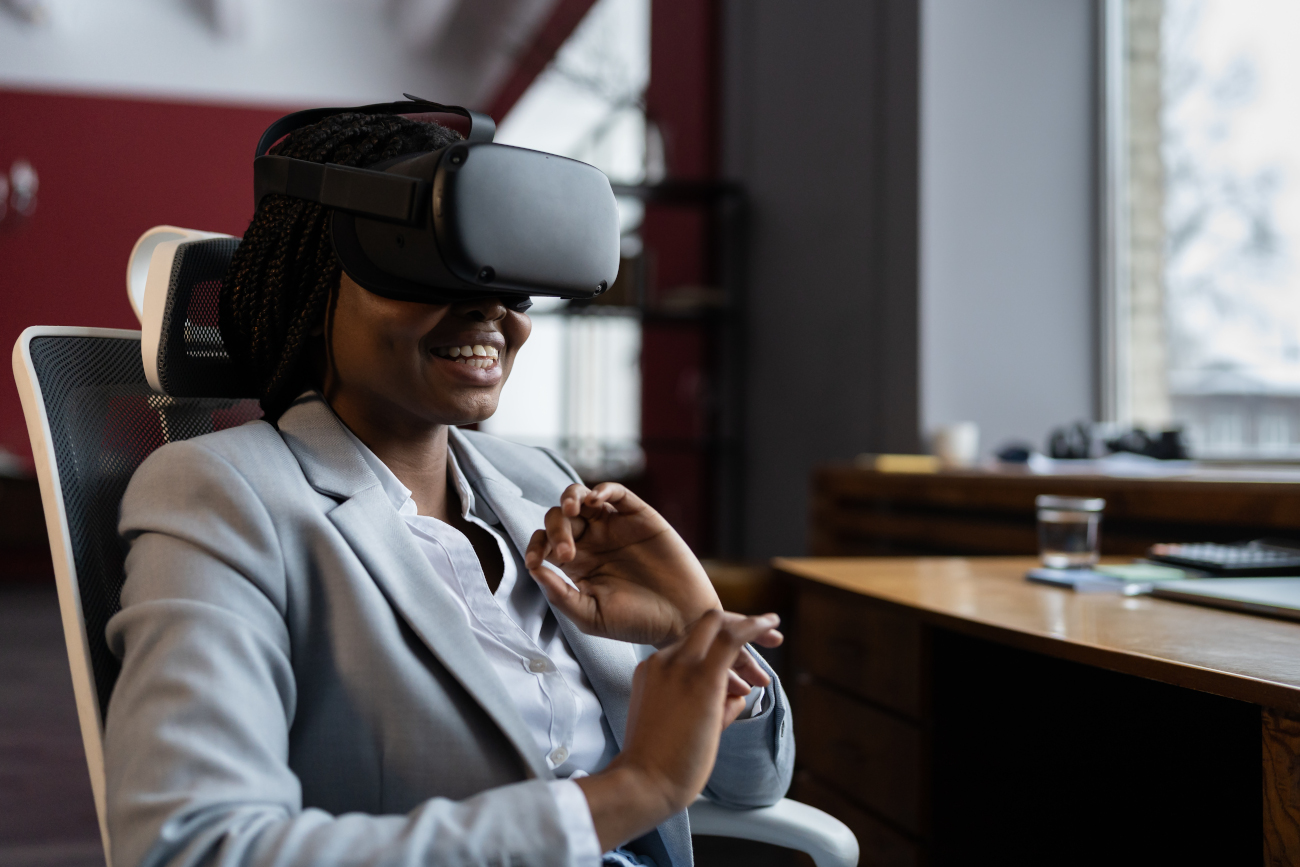Overview:
Feeling acknowledgment in virtual reality (VR) can fundamentally improve client care preparation by giving vivid, intuitive, and ongoing criticism.

This is how it's done:
Sensible Situations:
Mimicked Associations: VR makes sensible client support situations where learners can work on answering different client feelings.
Dynamic Conditions: Students can be put in various conditions, as occupied stores or quiet workplaces, to reenact genuine circumstances.
Feeling Location:
Constant Examination: Feeling acknowledgment programming dissects looks, voice tones, and non-verbal communication continuously.
Criticism System: Learners get prompt input on how well they are answering clients' personal signs.
Redone Preparing:
Customized Situations: Preparing modules can be custom-made to address explicit regions where a student needs improvement.
Versatile Learning: The framework can change the trouble level in view of the learner's exhibition, guaranteeing a custom fitted opportunity for growth.
Ability Advancement:
Relational abilities: Students further develop their verbal and non-verbal relational abilities by interfacing with virtual clients showing different feelings.
Critical abilities to think: Dealing with profound clients in a controlled climate improves critical thinking and compromises abilities.
Execution Following:
Information Examination: Nitty gritty reports on learners' exhibition assist with recognizing qualities and regions for development.
Progress Observing: Coaches can screen progress over the long run, guaranteeing constant turns of events.
Stress Decrease:
Safe Climate: Learners can rehearse without the feeling of dread toward genuine outcomes, decreasing uneasiness and building certainty.
Monotonous Practice: VR considers redundant practice in a controlled setting, assisting students with turning out to be more capable over the long haul.
Predictable Preparation:
Normalized Modules: VR guarantees that all students get predictable preparation, paying little mind to area or teacher.
Uniform Quality: Keeping a high and uniform nature of preparation across all workers prompts better in general client care.
Commitment and Maintenance:
Intelligent Learning: VR's intuitive nature keeps students drawn in, making the growing experience more agreeable.
Better Maintenance: Studies show that vivid opportunities for growth lead to better maintenance of data.
Practical:
Decreased Preparing Expenses: While the underlying arrangement might be exorbitant, VR preparing diminishes long term costs by limiting the requirement for actual preparation assets and spaces.
Versatile Arrangements: VR preparation can be effortlessly scaled to prepare huge quantities of representatives.
In synopsis, coordinating feeling acknowledgment in VR for client care preparation gives a reasonable, connecting with, and powerful strategy for creating fundamental client support abilities.
Read more: How can VR be used to train firefighters in realistic scenarios